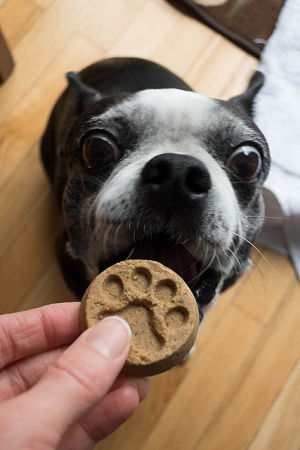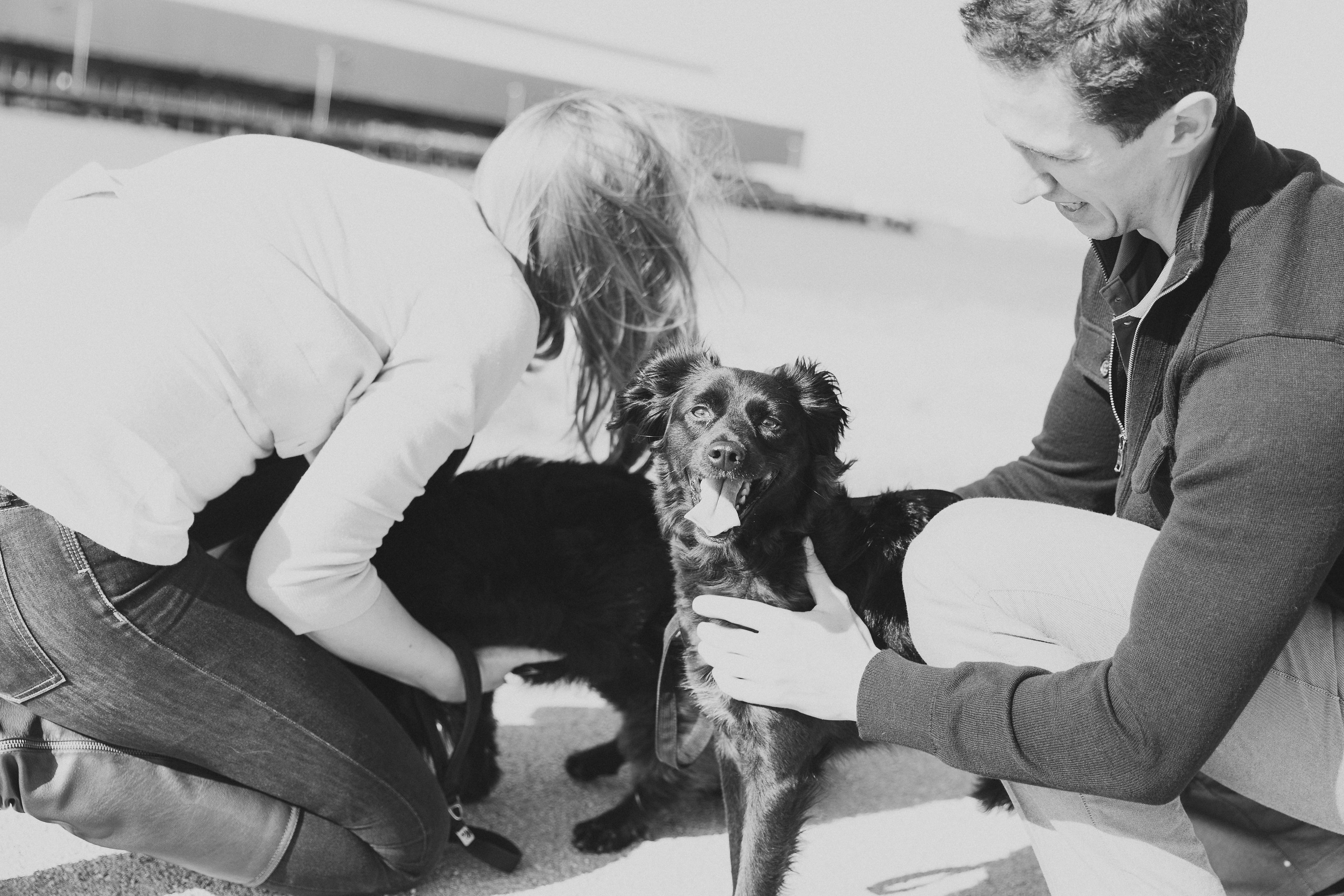Canine obesity is a significant problem in the United states. An estimated 54% of dogs are obese or overweight. An obese dog is an unhealthy dog, a ticking time bomb. It is a suffering animal, often enduring great pain and has a shortened life span to look forward to. The problem is, many owners don’t acknowledge that there is a problem or don’t understand they are subjecting their dog to very serious health risks.
Is your dog obese? If you suspect that your dog is overweight, your veterinarian can confirm it. However, you can check at home:
- Feel your dog’s ribs, base of tail, and spine.
- If you can feel bones fairly easily, the dog is just right (there should be a little fat over the areas, but you should still be able to easily feel each one).
- If you can see the ribs, the dog is underweight.
- If you can’t feel the ribs or can’t feel each individual rib, the dog is fat.
- Stand over your dog and look down. You should be able to see a defined waist behind the ribs. If your dog looks bony, he is too thin. If you can’t see a waist he is overweight. The further his sides extend beyond his hips and ribs, the more obese, the worse, he is.
- View your dog from the side. A healthy dog will have what is called an “abdominal tuck,” meaning that the abdominal area just behind the ribs is smaller than the chest. Some breeds have a more distinct abdominal tuck than others, but all dogs should have it. If your dog’s belly is at the same level as his ribs when viewed from the side, he is overweight.
What are the risks of dog obesity? The effects of canine obesity are very serious. It puts your dog in a constant state of low-level, chronic inflammation and leaves him vulnerable to a variety of diseases including:
- Limited mobility
- Diabetes mellitus
- Heart disease
- All types of cancers
- Hypertension
- Difficulty breathing
- Urinary bladder stones
- Osteoarthritis
- Complications with anesthetic
- Affected joints experience increased degeneration
- Death
“The effects of canine obesity are very serious.”
What to do if your dog is obese. If you believe that your dog is obese, talk to your veterinarian to determine the cause. Your dog may have Cushing’s disease or hypothyroidism – but often it is simply the way he is being fed. Whether it’s too many treats, a regular diet of table food, or substandard dog food, it is important to identify the problem and address it. Whatever your veterinarian advises you to do to help your dog lose weight and get healthy, you should follow his or her instructions to the letter. Your dog depends on you to keep him healthy. Don’t let him down.

If you enjoyed this post, you should read The Many Benefits Of Puzzle Toys For Dogs here.
Think your pup is obese? Share your next steps below!
